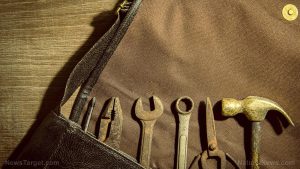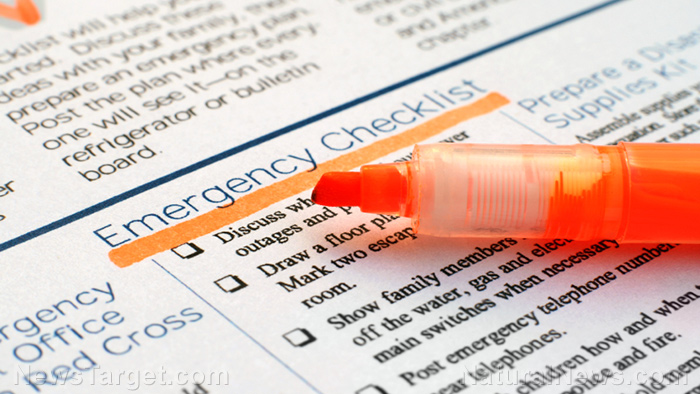
Homesteaders are hardworking and self-sufficient individuals. They also know how to use various tools to their advantage.
Just because a homestead requires a lot of time and hard work to maintain doesn't mean you can't make things easier for yourself. Before SHTF, invest in useful kitchen tools like a dehydrator and stand mixer so you can keep your family well-fed when disaster strikes. (h/t to Hillsborough-Homesteading.com)
Essential kitchen supplies
With the useful tools detailed in this list, you can cook and preserve food for your homestead. If you have excess harvest from your home garden, you can add more food to your survival stockpile or sell some for extra income.
Chest freezer
Using a chest freezer will help you save on electricity bills since it uses less energy than an upright freezer.
Compost bin
A compost bin is a must-have if you want to grow healthy crops in your home garden without using chemical fertilizers. It will help turn food waste into something useful.
Using a countertop container is one of the easiest ways to collect kitchen scraps. Get a pail with a tight-fitting lid that will fit on your countertop and throw daily food scraps in it.
Empty the pail regularly into a larger outdoor bin or tumbler to gather humus for your garden. Emptying the pail daily ensures that the container won't stink up your kitchen.
Use a countertop pail with charcoal filters if you're worried about any odors. Avoid using wooden pails because kitchen scraps contain a lot of moisture.
Dehydrator
A dehydrator is a versatile tool to have in the kitchen, especially for homesteaders. You can use it to make healthy and tasty snacks like fruit leather using fruits from your home garden. You can also use a dehydrator to make veggie chips and beef jerky.
French press
A French press is a must-have if you start each day with a cup of good coffee. Aside from making coffee, a French press can also be used to:
- Froth milk
- Make tea
- Make whipped cream
- Rinse quinoa and other grains
Food processor
With a high-quality food processor, you can make your own food from scratch even after SHTF. As a versatile kitchen tool, a food processor can be used to:
- Grind meat
- Make pasta dough
- Grind whole grains into flour
- Process homemade mayonnaise or nut butter
- Prepare dips, pestos, salsas and spreads
- Puree soups and sauces
Mason jars
You'll need lots of Mason jars along with a canning funnel, jar lifters and other canning equipment for preserving fruits and veggies during harvest season. Extra jars can also be repurposed to store liquids like apple cider vinegar.
Pressure cooker
You can cut down prep time by cooking with a pressure cooker.
Solar oven
If the power goes out, you can cook food using a solar oven. A solar oven doesn't require fuel, just a clear, sunny day. It also doesn't produce smoke that can harm your health.
A solar oven can be used to bake, boil, steam or roast food. Most solar cookers reach and maintain temperatures between 250 to 350 F, which is hot enough to cook with.
Solar ovens usually require less water because the water does not boil and take away valuable nutrients with it. Since food cooks slowly in a solar oven, you don't have to worry too much about burning anything.
Stand mixer
With a stand mixer, you can bake bread and make homemade pasta or ice cream.
Vacuum sealer
Use a vacuum sealer to preserve the quality of your meals or freeze meat and other food when SHTF. Vacuum packing bags also makes storing things in the freezer much easier.
Water bath canner
You can use a water bath canner to process food with high acidity. A water bath canner can also be used to make delicious homemade jams and jellies.

Power tools and backup power supply
Before SHTF, invest in a backup power supply like a generator or solar panels and useful tools for easy home repair. (Related: 5 Machines preppers need in their homestead before disaster strikes.)
Extension cords
You'll need extension cords if you often work on homesteading projects that require the use of power tools.
Miter saw
A miter saw is essential for various woodworking projects.
Socket wrench
A socket wrench makes it easier to tighten bolts.
Wood chisel
Use a sturdy wood chisel to trim hard edges or carve around things. Remain self-sufficient even after SHTF by investing in useful tools for your homestead, such as a dehydrator, a food processor and a pressure cooker.
Visit Homesteading.news for more tips on how to keep your homestead running smoothly even after disaster strikes.
Sources include:
Please contact us for more information.





















